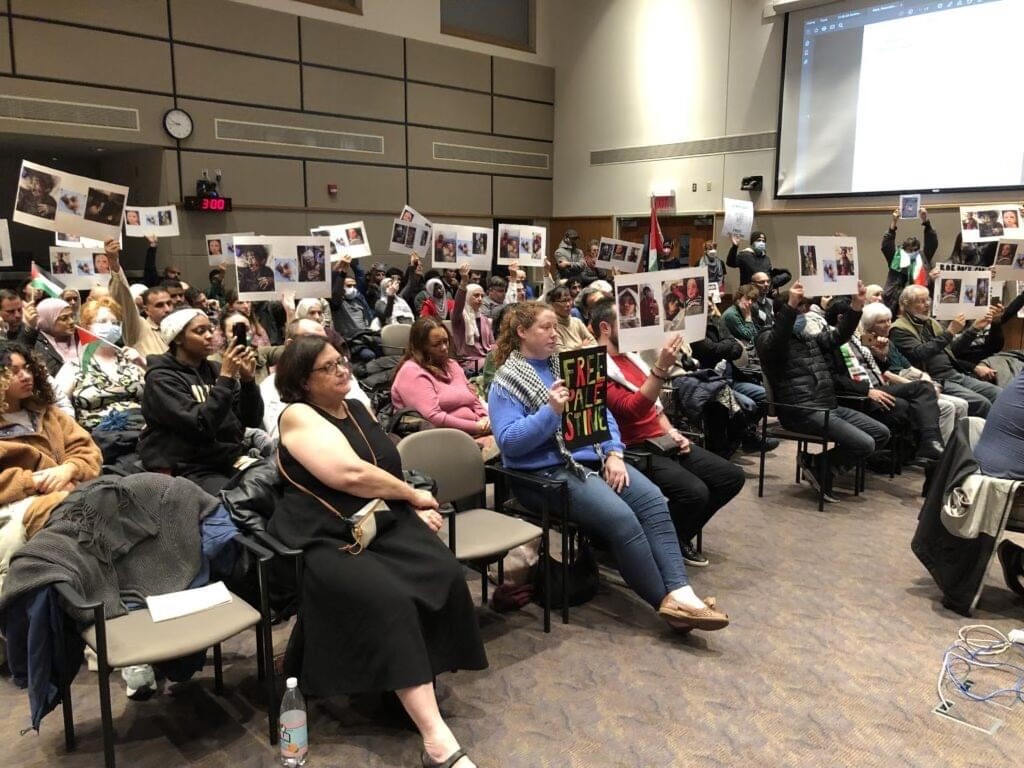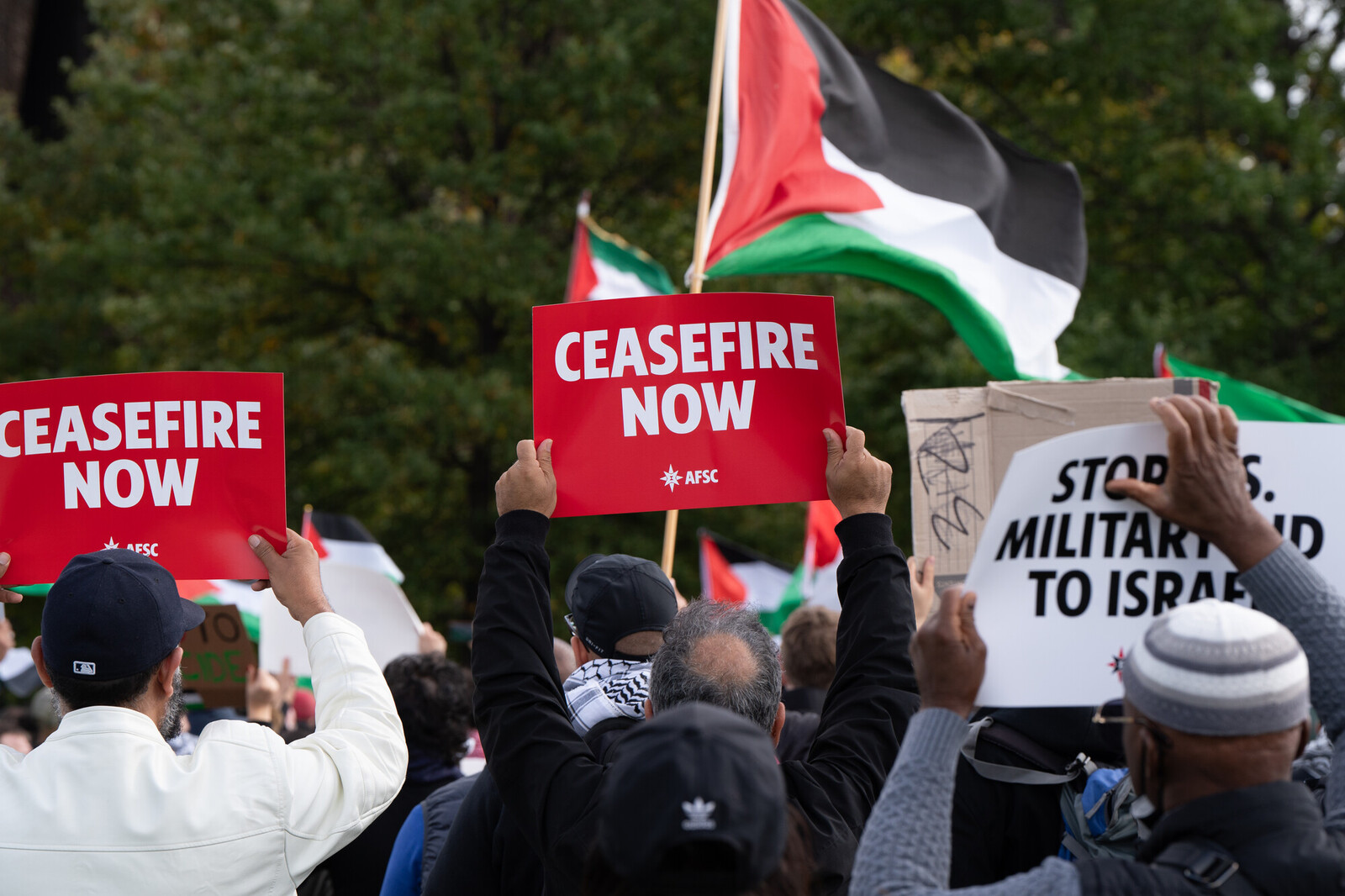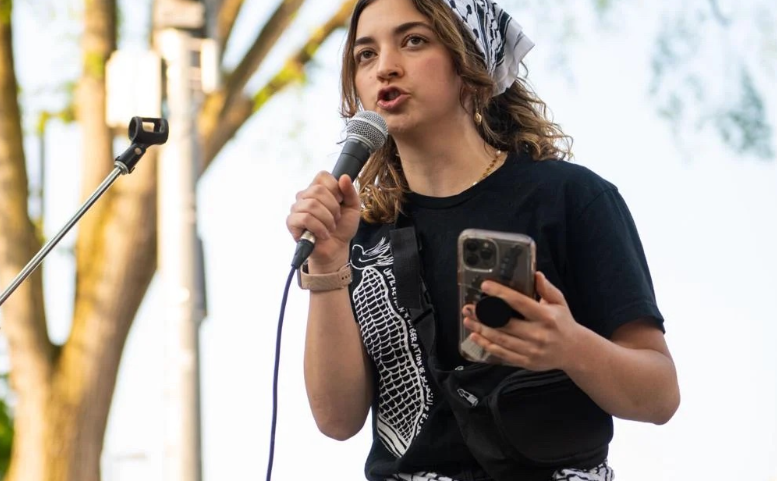
Community members at a city council hearing in State College, Pennsylvania. Photo: Roua Daas
In the heart of State College, Pennsylvania, we, students and community members, organized to successfully pass a city council resolution calling for a cease-fire in Gaza. This cease-fire resolution joins a growing number of resolutions passed in big cities and small towns across the U.S. (track them here). That includes a resolution in Chicago, supported by AFSC and partners.
Our efforts are also part of international calls to end Israel’s ongoing bombardment of Gaza. As the Palestine solidarity movement in the U.S. and across the world rapidly grows, our group aimed to highlight the strength of this movement in our local community, and uplift demands — beyond cease-fire — to stop sending our taxpayer dollars to fund Israel’s genocide of Gaza.
We hope our success moves even more communities to urge their local officials to pass a cease-fire resolution. Advocacy can be daunting, but it works. Thanks to organizing and advocacy by people across the country, cease-fire resolutions have passed in a wide range of places, including California, Washington, Iowa, Minnesota, Maine, and North Carolina.
We also wanted to share some of the strategies and messaging that worked for our campaign, which we hope will be helpful for others.
Collaboration with the Muslim community played a pivotal role in mobilizing supporters in our town of State College. With 75 to 100 people consistently attending city council meetings, we showcased the diversity and strength of our coalition. We also engaged council members by providing well-researched folders of information, ensuring that decision-makers were informed on the issue.
While State College’s city council is considered liberal, we still faced opposition to our efforts.
Here is how we addressed some of the city council members’ reservations about passing the resolution.
Global problems are local concerns.
One of the primary arguments against the resolution was that it wasn't the city's business to involve itself in international affairs. Our coalition shared with council members that the United States was actively funding Israel with billions of dollars in military aid every year.
You don’t need to be an expert to speak out.
Opponents of the resolution contended that the complexities of the Israel-Palestine conflict required expertise that local authorities lacked. We argued that one did not need to be an expert to recognize the immorality of killing over 20,000 innocent civilians in Gaza. We shared resources on the humanitarian crisis unfolding and emphasized that the issue transcended borders and demanded attention.
Every voice matters.
Skeptics questioned the impact a city council resolution would have on such a complex and distant conflict. We countered this by highlighting the increasing number of politicians calling for a cease-fire because of resolutions like this. We told them about the mass mobilization efforts around the world calling for a cease-fire and how these calls have impacted change. This resolution would add to the collective pressure on a global scale.
Difficult conversations are necessary to build understanding.
The fear of causing divisiveness within the community was another concern raised by the opposition. We countered by asserting that the divisiveness already existed, whether acknowledged or not. We believe that openly discussing the issue was essential for fostering understanding and, ultimately, unity.
In the end, our tireless efforts prevailed, leading to the successful passing of the city council resolution for a cease-fire in Gaza. Our campaign showcased the power of grassroots mobilization, community collaboration, and the importance of bringing global issues to the forefront of local governance. It serves as a testament to the impact individuals can have when they come together to advocate for peace and justice.
For more resources on how to organize for cease-fire resolutions in local city councils, check out this toolkit from the U.S. Campaign for Palestinian rights.

